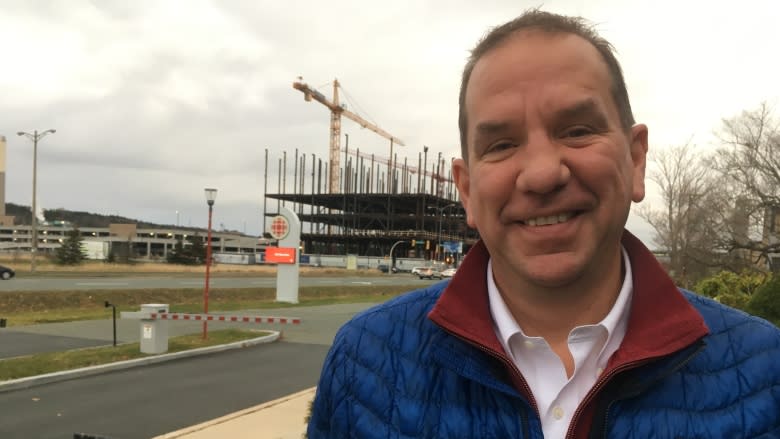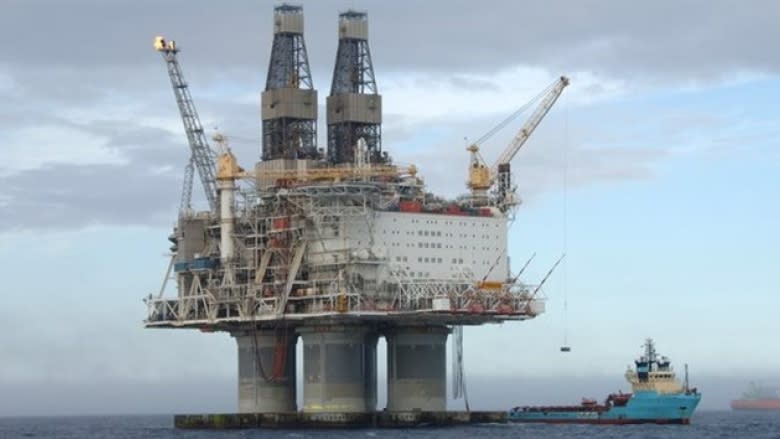Federally funded consultation hurting offshore development, NOIA says
A group that represents Newfoundland and Labrador's petroleum industry is questioning the amount of federal money being given to groups for consultation during offshore oil and gas exploration.
NOIA, the Newfoundland and Labrador Oil and Gas Industries Association, says so far this year the Canadian Environmental Assessment Agency has given $860,000 to applicants who want a say on four offshore exploration programs.
Consultation for the sake of consultation
There are currently several projects undergoing an environmental assessment in the Newfoundland and Labrador Offshore, involving Husky, Nexen, Statoil, and ExxonMobil.
NOIA chair Andrew Bell says most of the federal money for consultations is going to Indigenous groups based outside Newfoundland and Labrador, often in places like northern Quebec that are nowhere near the exploration sites.
"Eighty-four per cent of the funding goes outside of Newfoundland and groups over 2,000 kilometres away, west of us and northern Quebec, for exploration 200-300 kilometres off the east coast of Newfoundland," Bell told the St. John's Morning Show.
"If it's not in context, or not relative, what is the purpose? Are we just putting consultation for the sake of consultation?"
CEAA says science backs up funding
In a response, the CEAA says the $859,111 was distributed among 47 recipients in 2017:
- Eastern Newfoundland Exploration Drilling Project: $228,977 to 13 recipients.
- Flemish Pass Exploration Drilling Project: $217,777 to 12 recipients.
- Husky Energy Exploration Drilling Project: $205,477 to 11 recipients.
- Nexen Energy ULC Flemish Pass Exploration Drilling Project: $206,880 to 11 recipients.
The association says 11 of those recipients were Indigenous, and that the agency is taking appropriate steps to ensure it meets legal duty to consult all potentially affected Indigenous communities.
It also says the recipients do have valid concerns. One example is the Nexen Energy project, where there is well-documented science that backs up the fact that Atlantic salmon migrate from the Newfoundland Grand Banks to areas where groups that were awarded funding are concerned about.
Despite that, Bell questions why the four exploration programs are going through individual assessments when they could be consolidated.
He said dividing them slows down the exploration process and ultimately delays production.
"It's like you building a subdivision and you have to consult and pay people federal money — taxpayers' dollars — every time you build a house next door to each other," he said.
"There's already existing production platforms off the east coast Newfoundland, so why are we all of a sudden doing this over again and why are we paying these groups for every single application that's put forward when they're right next door to one another?"
All the fields now producing oil were discovered in the 1980s, and Bell says new discoveries are needed to maintain the industry.



